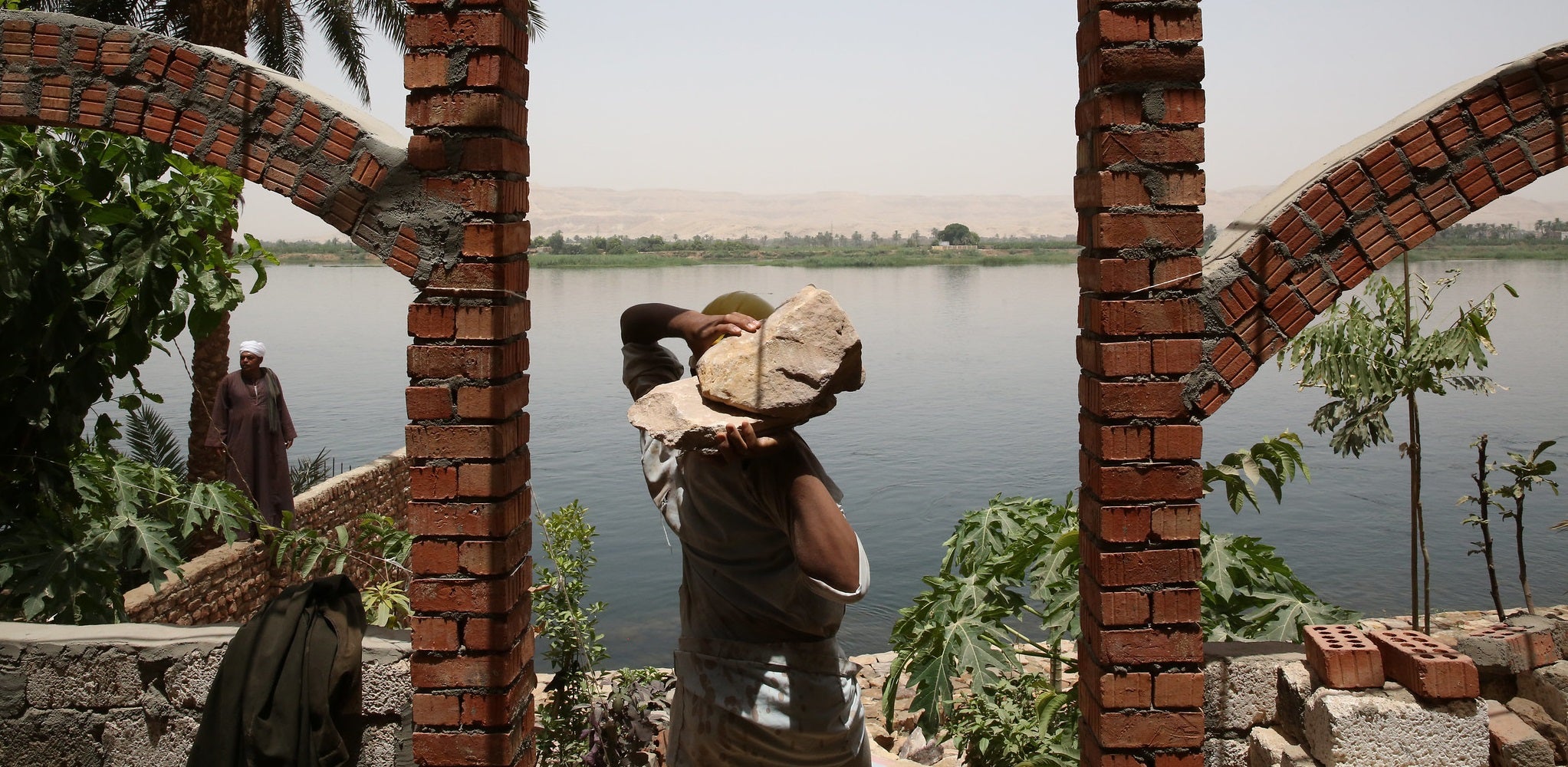 strengthen water utilities
strengthen water utilities
The Global Water Security and Sanitation Partnership* supports Egyptian water utilities to improve performance and boost citizen engagement.
Over the last several years Egypt has started to address the lack of access to water and sanitation in rural areas that put people’s health and environment at risk. The percentage of sanitation coverage in rural areas has witnessed a dramatic rise from 12 percent in 2014 to 40 percent in 2021. This translates to a tangible improvement in the quality of life for over 17 million people
One of the major shifts in Government of Egypt’s approach has been policy reforms to strengthen water utilities and making them accountable and sustainable.
In 2004, the Ministry of Housing, Utilities, and Urban Communities created a national holding company to manage the construction of treatment plants and other infrastructure under 25 water and sanitation companies. While it has been a slow process since then, with more decentralization, these companies are getting more resources and responsibilities. To get all the benefits of decentralization, the government had to create strong systems that allow citizens to hold water and sanitation companies responsible for high-quality, cost-effective service.
The Egyptian government also launched the National Rural Sanitation Program in 2013. The initiative aims to provide sustainable rural sanitation services to an additional 45 million people. The GWSP is supporting the Sustainable Rural Sanitation Services Program, a program for results which covers three results areas namely the sanitation access covering the full sanitation chain, utility performance improvement and finally the national enabling environment. The GWSP supported building the capacity of water and sanitation companies, expand reform efforts to these companies, and coordinate sector activities.
The GWSP also helped the government develop plans and assessments to improve performance. A performance review found that six of the country’s governorates have met or exceeded their initial targets set in their performance action plan for FY 20-21 despite the impact of the COVID-19 pandemic. Moreover, by implementing a fair and transparent system for land acquisition processes, 96% of land acquisition was secured on time to start the implementation of the project.
The GWSP also helped the government standardize procurement procedures by creating manuals, bidding documents, and complaint handling processes. Complaint management systems have been developed and staff have received training on how to resolve these issues. The partnership also enabled the government to increase citizen engagement by launching citizen engagement local committees to link communities to the work of the Sustainable Rural Sanitation Services Program. These reforms are likely to endure beyond the water and sanitation companies participating in the program.
The GWSP’s work helped the Government of Egypt build trust among all parties involved, from citizens, contractors, companies and government stakeholders. Citizen engagement and mechanisms to redress grievances are needed to achieve better project outcomes. At the same time, buy-in from stakeholders is needed to change inefficient processes. With time and sufficient funding, stronger water utilities can create a culture of performance that is focused on customers and staff retention.
• The GWSP is a multi-donor fund within the World Bank that produces cutting-edge research and analytics to create and deliver urgent, practical, and innovative solutions.



Join the Conversation